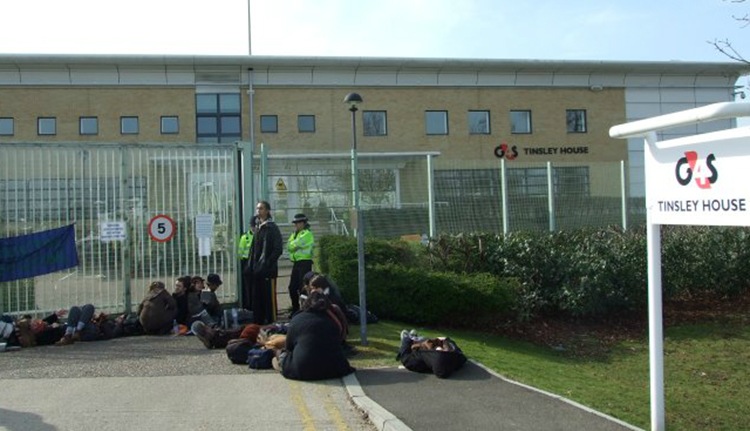Eastbourne Herald
December 13, 2013

A man who broke his spine when he tried to commit suicide by running head first into a concrete wall while in detention awaiting deportation at an immigration removal centre near Gatwick has lost his High Court damages action.
Gambian Amadou Nyang, 39, is now paralysed from the neck down, totally dependent on others, and lives in a care home in West Sussex.
The January 2008 incident at Tinsley House was said to have been triggered by a refusal to allow Mr Nyang to leave a room, where he was being kept apart from other detainees for his own safety and that of others, to go and watch his national team play a football match on TV.
Simon Readhead QC told Mr Justice Lewis in London that Mr Nyang could be calmed down if handled properly, and if there had been better management and an earlier review of his deteriorating condition, he would not have reached such a highly disturbed state.
But the judge said that, apart from one exception in each case, there was no negligence by G4S Care and Justice Services Ltd or the medical staff who provided healthcare services to detainees and, even if the detention and healthcare staff had acted differently, they would not have been able to prevent Mr Nyang from harming himself.
He said that Mr Nyang had developed a depressive illness with paranoid thinking and increasing agitation and threats of self-harm.
“He came to believe that he would never return to the Gambia and he would not see his wife and family again. At times, because of his disordered mental state, he believed that officials were playing with his mind and deliberately keeping him in detention rather than returning him to the Gambia.
“That, of course, was not true and the time that it was taking to return Mr Nyang to the Gambia was largely due to the time taken by the High Commission to process the necessary travel documentation.”
Tragically, he added, Mr Nyang’s condition deteriorated further and he took what he then believed to be the only way out of his situation.
 Daily Stormer The Most Censored Publication in History
Daily Stormer The Most Censored Publication in History


